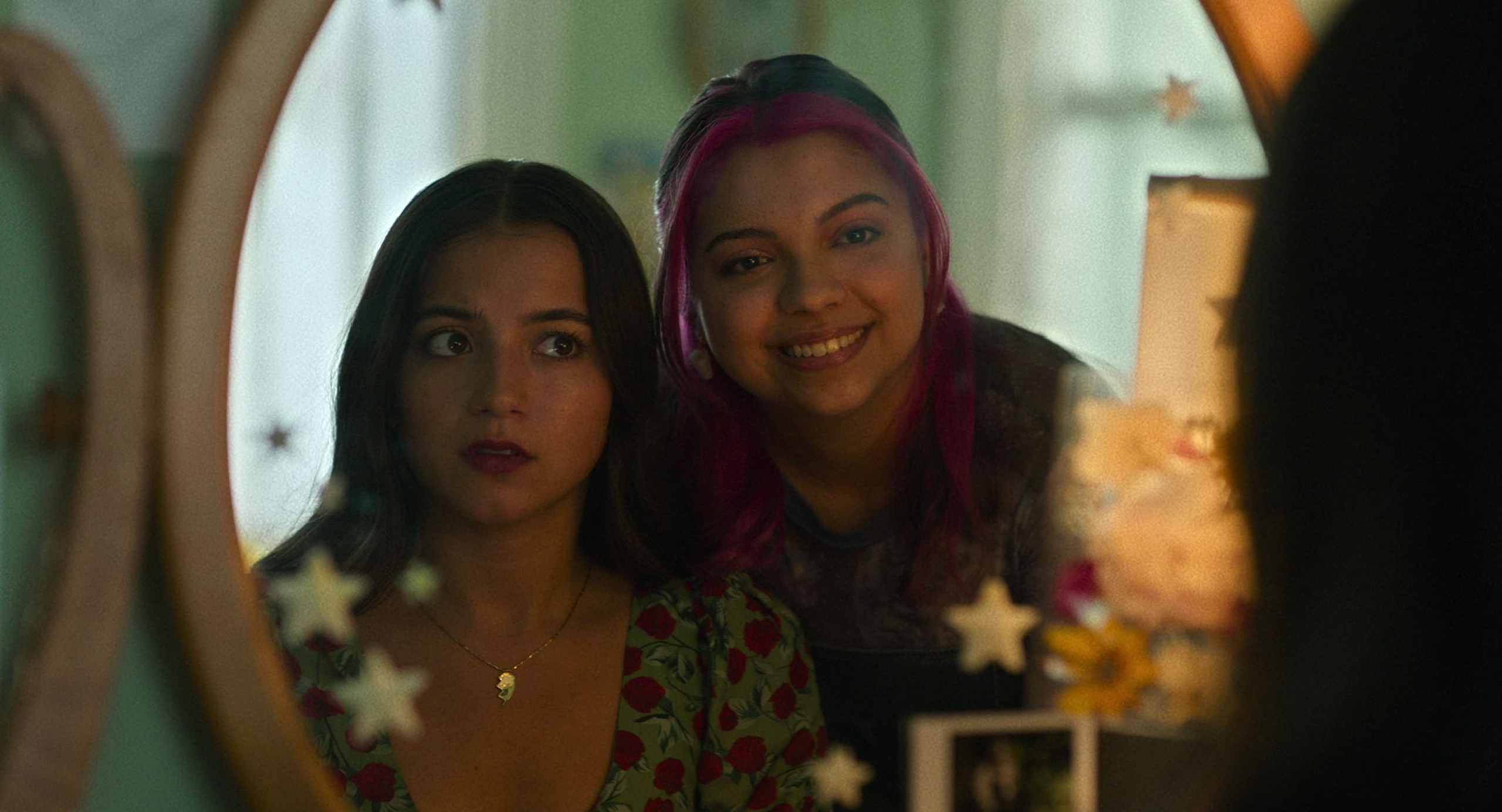Turtles All the Way Down – Film Review
Published May 5, 2024

The highly anticipated adaptation of John Green‘s 2017 novel, Turtles All the Way Down, delivers an emotional exploration of mental illness through the lens of a teenage girl’s quest for love and normalcy. Directed by Hannah Marks with a screenplay by Elizabeth Berger and Isaac Aptaker, the film offers a poignant yet uneven portrayal of a young woman’s struggle with obsessive-compulsive disorder (OCD). Anchored by a compelling performance from Isabela Merced, the movie succeeds in some areas while falling short in others.
At the heart of the story is 16-year-old Aza Holmes (Isabela Merced), whose life is a daily battle against the intrusive thoughts and compulsions brought on by her OCD. When news breaks of the disappearance of local billionaire Russell Pickett, Aza’s best friend Daisy (Cree) convinces her to reconnect with her childhood friend, Davis Pickett (Felix Mallard), Russell’s son, in the hope of finding clues that could lead to a reward. As Aza and Davis rekindle their friendship, Aza finds herself navigating the complexities of young love, mental illness, and the mystery of the missing billionaire.
Isabela Merced delivers a powerful performance as Aza, capturing the character’s internal struggles with a nuanced blend of vulnerability and resilience. Merced’s portrayal of Aza’s OCD is both respectful and realistic, shedding light on the often misunderstood nature of the disorder. The scenes depicting Aza’s spiraling thoughts and compulsions are some of the most compelling in the film, thanks in large part to Merced’s ability to convey the sheer terror and helplessness that accompany them.
Felix Mallard as Davis Pickett provides a solid counterpart to Merced’s Aza. His portrayal of a young man grappling with his father’s disappearance and the emotional burden it places on his family is heartfelt and genuine. The chemistry between Merced and Mallard is palpable, lending authenticity to their budding romance. However, the film’s exploration of their relationship sometimes feels rushed, sacrificing depth for the sake of narrative progression.
Cree’s Daisy, Aza’s outspoken and energetic best friend, injects a much-needed dose of humor and levity into the story. Cree’s performance is vibrant and engaging, making Daisy a memorable character despite her secondary role. Maliq Johnson as Mychal, Daisy’s love interest, adds another layer of charm and warmth to the ensemble, though his character’s development is somewhat limited by the screenplay’s focus on the central plot.
Poorna Jagannathan as Dr. Kira Singh, Aza’s therapist, brings a sense of calm and wisdom to the film. Her interactions with Aza provide some of the most insightful moments, offering a compassionate portrayal of the therapeutic process. However, one of the film’s shortcomings is its tendency to underutilize Jagannathan’s character, leaving viewers wanting more from this dynamic.
Director Hannah Marks brings a visually appealing style to the film, using creative cinematography and color palettes to mirror Aza’s internal state. The use of close-ups and handheld camera work effectively conveys the claustrophobic nature of Aza’s OCD, drawing viewers into her perspective. However, there are moments when the direction feels disjointed, with abrupt transitions that disrupt the narrative flow.
Elizabeth Berger and Isaac Aptaker’s screenplay stays largely faithful to John Green’s novel, retaining the core themes of mental illness, love, and the search for identity. Yet, in translating the story to the screen, some of the novel’s depth and nuance are lost. The film attempts to juggle multiple plotlines—the mystery of Russell Pickett’s disappearance, Aza’s battle with OCD, and her romance with Davis—but struggles to balance them all effectively. As a result, certain aspects of the story feel underdeveloped or rushed, leaving viewers with lingering questions.
The film’s portrayal of OCD is commendable for its accuracy and sensitivity. It avoids sensationalizing or trivializing the disorder, instead offering an honest depiction of its impact on Aza’s daily life and relationships. However, the film occasionally falls into the trap of using Aza’s OCD as a plot device rather than fully exploring its complexities. This can make her struggles feel secondary to the central mystery, rather than an integral part of her character.
Turtles All the Way Down is ultimately a film about connection—both with others and with oneself. It tackles important themes of mental health and the search for identity in a heartfelt manner, even if it doesn’t always hit the mark. The performances, particularly by Merced and Mallard, are strong enough to carry the film through its weaker moments, and the portrayal of OCD is a step forward in cinematic representations of mental illness.
